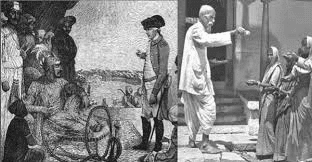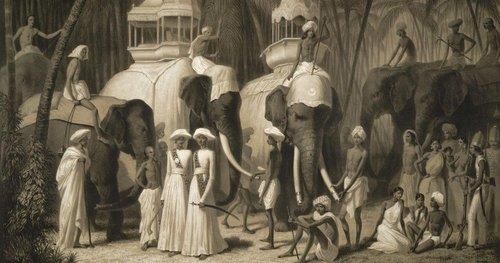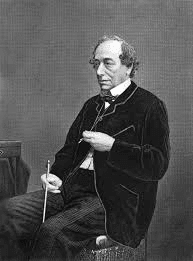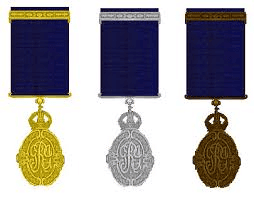|
The British administration in India adopted a policy of ___ and ___ to maintain control over the population. |
Card: 1 / 48 |
|
True or False: The British government's attitude towards educated Indians was supportive during the rise of the nationalist movement. |
Card: 3 / 48 |
|
False. The British adopted a hostile attitude towards educated Indians, interpreting their leadership as a challenge. 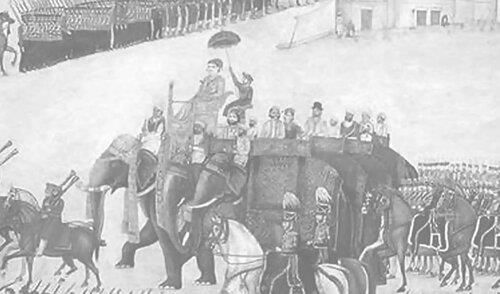 |
Card: 4 / 48 |
|
The British sought alliances with the most reactionary elements of Indian society, such as ___ and ___. |
Card: 5 / 48 |
|
Fill in the blank: The Indian Factory Act of 1881 primarily addressed the issue of ___ labor. |
Card: 7 / 48 |
|
Fill in the blank: A disproportionately large expenditure on the army and civil administration in British India resulted in an underdevelopment of ___ services. |
Card: 9 / 48 |
|
The maximum working hours for children as per the various Factory Acts were limited to ___ hours a day. |
Card: 11 / 48 |
|
True or False: The Vernacular Press Act of 1878 was repealed without any public opposition. |
Card: 13 / 48 |
|
False. The Vernacular Press Act of 1878 was repealed under public protest in 1882. 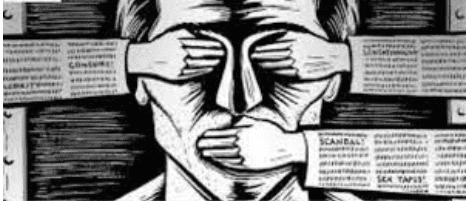 |
Card: 14 / 48 |
|
What was the primary concern behind the imposition of the Vernacular Press Act? |
Card: 15 / 48 |
|
The primary concern was to prevent the influence of the nationalist press on public opinion. |
Card: 16 / 48 |
|
True or False: Colonial rulers systematically included Indians in higher grades of civil and military services. |
Card: 17 / 48 |
|
False. Colonial rulers systematically excluded Indians from higher grades of services. 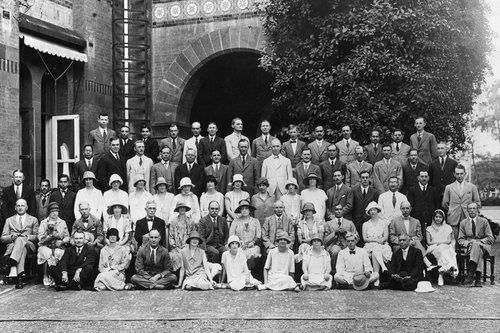 |
Card: 18 / 48 |
|
Fill in the blank: The British policy of non-interference in Indian society lasted until ___. |
Card: 19 / 48 |
|
True or False: The Industrial Revolution in Britain had no impact on Indian society. |
Card: 21 / 48 |
|
False. The Industrial Revolution led to the British desire to transform Indian society to create a market for industrial goods. 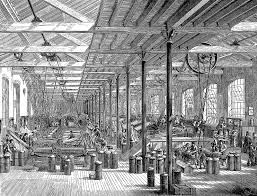 |
Card: 22 / 48 |
|
What fundamental ideas did the French Revolution promote that influenced British policies in India? |
Card: 23 / 48 |
|
Liberty, equality, and fraternity, which contributed to the rise of democracy and nationalism. 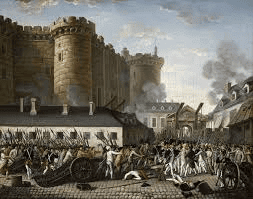 |
Card: 24 / 48 |
 Unlock all Flashcards with EduRev Infinity Plan Starting from @ ₹99 only
|
|
Fill in the blank: The doctrine of ___ suggests that societies must change with time. |
Card: 25 / 48 |
|
Which group advocated for minimal changes in Indian society during the British rule? |
Card: 27 / 48 |
|
What was one characteristic of the new wave of thought that emerged in the 18th and 19th centuries? |
Card: 29 / 48 |
|
Advocacy of rationalism, which emphasized faith in reason and a scientific approach. |
Card: 30 / 48 |
|
Fill in the blank: The ___ Renaissance involved a cultural and intellectual revival in India influenced by Western ideas. |
Card: 31 / 48 |
|
The government feared that too much modernization might generate forces hostile to their interests. True or False? |
Card: 33 / 48 |
|
True. The government was concerned that rapid modernization could lead to opposition against their authority. |
Card: 34 / 48 |
|
What was one of the roles of Christian missionaries in relation to the Imperialists? |
Card: 35 / 48 |
|
They supported the Imperialists as they believed British law and order were essential for their propaganda. 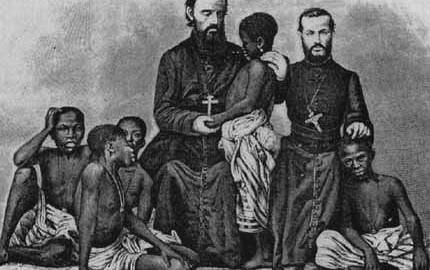 |
Card: 36 / 48 |
|
Fill in the blanks: Christian missionaries sought ___ and ___ support, holding out the hope that converts would be better customers of their goods. |
Card: 37 / 48 |
|
True or False: The primary goal of Christian missionaries was to eradicate all forms of native culture in India. |
Card: 39 / 48 |
|
False. Their primary goal was to spread Christianity and westernization, not to eradicate all native culture. |
Card: 40 / 48 |
|
The dilemma before the government was whether to prioritize modernization or to maintain traditional interests. Explain this dilemma. |
Card: 41 / 48 |
|
The government faced a conflict between embracing modernization, which could foster progressive reforms and challenges to authority, and preserving traditional systems that maintained social order and stability. |
Card: 42 / 48 |
|
The British policy towards princely states emphasized their ___ to British authority after the title of Kaiser-i-Hind was adopted in 1876. |
Card: 43 / 48 |
|
True or False: The adoption of the title Kaiser-i-Hind by the Queen symbolized the equality of Indian states with the British Crown. |
Card: 45 / 48 |
|
Protection of the Indian empire, expansion of British commercial and economic interests, and keeping other European imperialist powers at bay in Asia and Africa. |
Card: 48 / 48 |





